Life
Sign up for our newsletter
We summarize the week's scientific breakthroughs every Thursday.
-
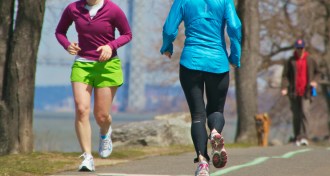 Neuroscience
NeuroscienceMighty muscles may stave off depression
Strong muscles protect the brain from stress-induced toxin associated with depression, a study in mice suggests.
-
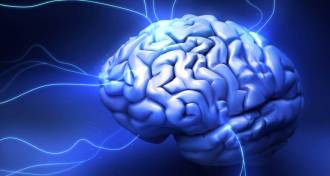 Psychology
PsychologyBalancing the excitation and inhibition tightrope in depression
A new study looks at how a balance of positive and negative inputs in the lateral habenula might relate to disappointment and depression.
-
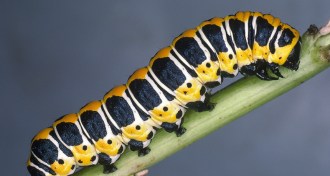 Life
LifeFledgling birds change rules for caterpillar color
An unusual experiment shows that larvae lose the advantage of warning colors during the seasonal flush of naïve predators.
By Susan Milius -
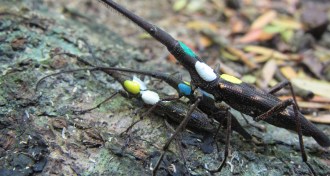 Animals
AnimalsSneaky little giraffe weevils beat big rivals
A little stealth gives smaller giraffe weevil males a leg up when competing with big ones for mates.
By Susan Milius -
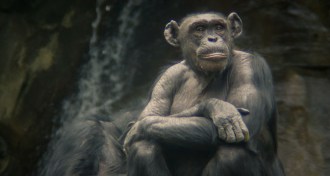 Animals
AnimalsChimps raised among humans may have problems as adults
Chimpanzees taken away from their mothers and raised to be pets or entertainers have problems relating to other chimps later in life.
-
 Neuroscience
NeuroscienceDyslexic brain may solve some math problems in a roundabout way
Children with dyslexia rely heavily on right brain to do addition problems.
-
 Ecosystems
Ecosystems‘Where Do Camels Belong?’ explores invasive species
Ecologist Ken Thompson takes a closer look at the impacts (or lack thereof) of invasive species.
-
 Life
LifeThoughtful approach to antibiotic resistance
Changing how people think about antibiotics is already showing promise in reducing antibiotic use and costs. It’s doubtful, however, that any single strategy will be enough.
By Eva Emerson -
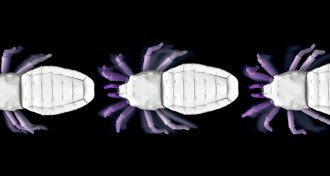 Paleontology
Paleontology3-D scans reveal secrets of extinct creatures
Paleontologists can dig into fossils without destroying them and see what’s inside using 3-D scanning. What they’re learning helps bring the past to life.
-
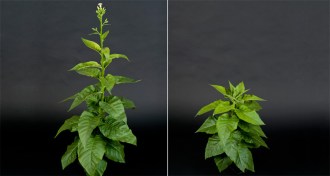 Plants
PlantsBorrowed genes raise hopes for fixing “slow and confused” plant enzyme
Inserting some bacterial Rubisco chemistry into a plant might one day boost photosynthesis and help raise crop yields.
By Susan Milius -
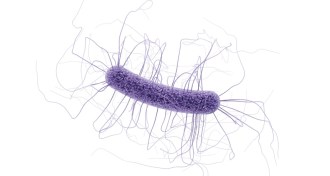 Health & Medicine
Health & MedicineDoctors enlisted to turn the tide on antibiotic resistance
Antibiotic stewardship requires education, diligence, and changes in prescribing. At some hospitals, it’s beginning to halt a dangerous trend.
By Nathan Seppa -
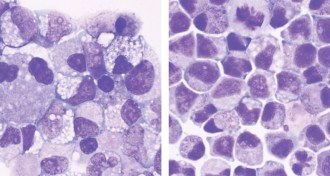 Life
LifeMolecule boosts numbers of stem cells in umbilical cord blood
A new molecule multiplies stem cells in umbilical cord blood. More blood-making stem cells could mean more effective transplants for people with blood cancers.